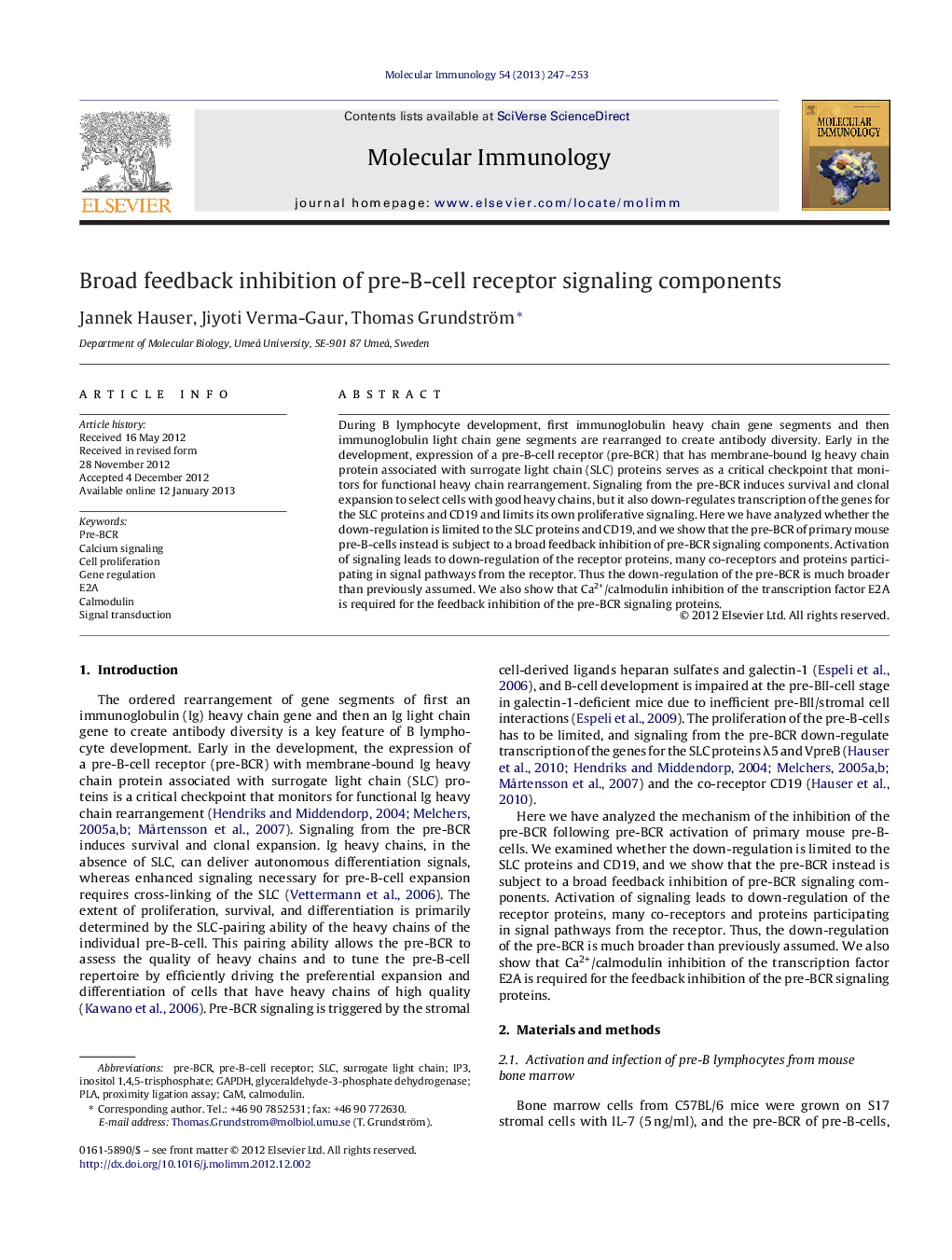| Article ID | Journal | Published Year | Pages | File Type |
|---|---|---|---|---|
| 2831177 | Molecular Immunology | 2013 | 7 Pages |
During B lymphocyte development, first immunoglobulin heavy chain gene segments and then immunoglobulin light chain gene segments are rearranged to create antibody diversity. Early in the development, expression of a pre-B-cell receptor (pre-BCR) that has membrane-bound Ig heavy chain protein associated with surrogate light chain (SLC) proteins serves as a critical checkpoint that monitors for functional heavy chain rearrangement. Signaling from the pre-BCR induces survival and clonal expansion to select cells with good heavy chains, but it also down-regulates transcription of the genes for the SLC proteins and CD19 and limits its own proliferative signaling. Here we have analyzed whether the down-regulation is limited to the SLC proteins and CD19, and we show that the pre-BCR of primary mouse pre-B-cells instead is subject to a broad feedback inhibition of pre-BCR signaling components. Activation of signaling leads to down-regulation of the receptor proteins, many co-receptors and proteins participating in signal pathways from the receptor. Thus the down-regulation of the pre-BCR is much broader than previously assumed. We also show that Ca2+/calmodulin inhibition of the transcription factor E2A is required for the feedback inhibition of the pre-BCR signaling proteins.
► The pre-BCR is subject to a broad feedback inhibition of its signaling components. ► Thus, the down-regulation of the pre-BCR is much broader than previously assumed. ► We reveal the detailed molecular mechanism for the feedback inhibition.
